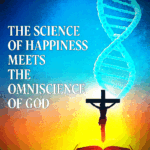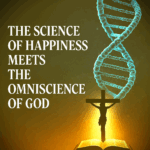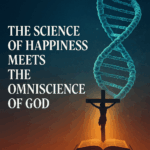
Text: Mark 1:9-15
Theme: Redemption
___________________________
Intr – Mark opens his Gospel by reporting Jesus and the beginning of His mission with a short and powerful sentence: “Repent and believe the Gospel”. Redemption. Forgiveness. Gospel. The most precious gift that Christianity has received and has to to offer to mankind can also become the most challenging, awkward or even rejected gift: unconditional, immediate and permanent redemption from hell through forgiveness of sins.
“How so pastor? I thought that everyone would crave forgiveness in their life. Isn’t true that all of us desire to be forgiven when we fail? A new heart, a new beginning, reconciliation.” Well, this is how the Bible presents it. But this is not necessarily how the world and our rational mind construes forgiveness and redemption most of the time.
1
A common view of forgiveness and redemption can be illustrated by what movies, TV shows and Netflix series capture and present in their plots and screenplays. Think about what happens in most, if not all, shows that you have watched or are watching when it comes to redemption. Somebody does something wrong, misses the mark, lets somebody down; cheats steals, kills… you name it. Whenever that character must achieve redemption, that is usually by doing something to earn their redemption. But not something small or simple. A great sacrifice, an unexpected act of courage or bravery, losing everything they have or even by dying in the end. Only then redemption may take place and the person can be considered forgiven. People don’t expect that someone would walk up to that person and say: “you are forgiven. Start over. Try not to do that anymore”. That would be strange, awkward or even offensive. Not to mention it would instantly kill 95% of the movies and series. It is either redemption after an extraordinary deed, or punishment for the lack of it.
Many times, when we feel the weight of our sins on our shoulders, we wish that God would give us a redemptive act or process for us to go through in order to feel worthy of being forgiven. Perhaps deep inside we wish for a act of humiliation, courage, bravery or of losing everything so that we could really feel forgiven and redeemed.
This may be one of the places where the suggestion of “forgiving yourself” have started. For we know that this expression is not in the Bible. There we find either God forgiving people, or people forgiving each other. We never see indications that we should or that we can “forgive ourselves.” Since it is not in the Bible, it is probably in the world around us, or in our hearts. We may be led to conclude that since the sin we committed is so big, only a big act of redemption can make up for it. Then we would be able to feel that we are forgiven, and only then we would be forgiving ourselves. As we are faced with Lent, we see the glaring difference here – for in Lent we are reminded that forgiveness comes freely through Christ, and that we passive receivers of that forgiveness. That may sound strange or awkward. That’s too easy. No, that’s not enough. That’s offensive to our intelligence, like a shallow movie screenplay. We want more; we want the plot to thicken. We may catch ourselves desiring that big act of redemption in front of the world so that our self may feel forgiven.
2
The plot has thickened. The Son of God came to Earth, in what was supposed to be the feast of Redemption, but – plot twist – became the drama of Crucifixion instead. Suffering, Cross, Death. Then, when everything seemed to be lost, we see that the cross scene means that the story the Father from His son was coming to the perfect conclusion. It looked like defeat, but – plot twist again– by that very act victory was won and redemption was achieved for you and me. Jesus is the one who could do something to obtain redemption, and who actually accomplished it by His work. Not for himself though, but for you. When your faith is in him and you live a life of repentance and trust in his redemption, you are redeemed.
This is the message of the Gospel today: “Repent and believe”. After His Baptism, Jesus starts to cover the ground of Palestine with this simple but powerful message. Repent and believe. The core of this message addresses sin, the separation between man and God. It can only be amended through repentance and forgiveness. But it continues on in daily life, as we continue to be sinner in need of repentance and forgiveness:
-You coveted something and you are near to have it becoming an action? Repent and believe.
-You spoke badly about someone, gossiped, gave false testimony, lied? Repent and believe.
-You’ve made yours something that doesn’t belong to you? Repent and believe.
-You cheated on somebody? Repent and believe.
-You lacked respect for people to whom it is due? Repent and believe the Gospel.
-You took God’s name in vain, you didn’t sanctify the day of rest? Repent and believe.
|As you noticed, I am quoting the 10 commandments in the reverse order. It takes us to the main reason for sin – breaking the first commandment, not having God above all things.
When that is the case, repent and believe the Gospel! It is not you, it is Jesus. He is not saying ‘Forgive yourself”. He is saying, if you truly repent, you are forgiven. Believe that!
Then, everything you do after that is a fruit of that redemption. You live a life of daily repentance and faith, trusting the Gospel of Jesus and the presence of God in your daily life, living that faith with your works. I know, it may not be a life worth of a Netflix series, but it is a life worth of God’s own Son’s life. Worth of His attention, care and love.
3
Now, does that mean that when people do bad stuff, they should be forgiven, things will be forgotten instantly, the person will be left of the hook and we carry on as if nothing happened? Well, the first part is correct: when you sincerely repent from your sin and trust in Christ’s mercy, you should…actually, you will be forgiven. God forgives and carries on.
That doesn’t mean though that human consequences of that sin will not be addressed, dealt with and humanly speaking, be punished. What we need to notice here is that when a Christian truly repents of his or her sin, small or big, believes in the forgiveness that is in Jesus, and is committed in her or his life to life in Christ, that person will not act as if anything had happened and just carry on. They will be the first to look for amendment, correction, and restoration. When we repent and believe the Gospel, we are sensitive to the consequences of our actions and we will work hard and our best on them.
This speaks to the “forgive yourself” trend. If you do something wrong, your will be the first to repent, believe, and then to make amends, correct what is wrong, or to suffer the consequences of your acts. But not as if redemption would be at the end of the process. Redemption is at the beginning and the is propelling force behind it it. Jesus’ message is clear, summed up in one sentence and speaks to your heart today and every day:
Repent – Turn back
Believe – Look above
Live (in Him) – Look ahead and around
Cc – Redemption, forgiveness may be awkward, strange, and even offensive when it comes to the Biblical perspective. Well, it is. That’s why it can only be received through faith in the Gospel. That strange, awkward and perfect way that gives us our a precise screenplay and plot for our life. And that will gives us the best “The End” at the end.








